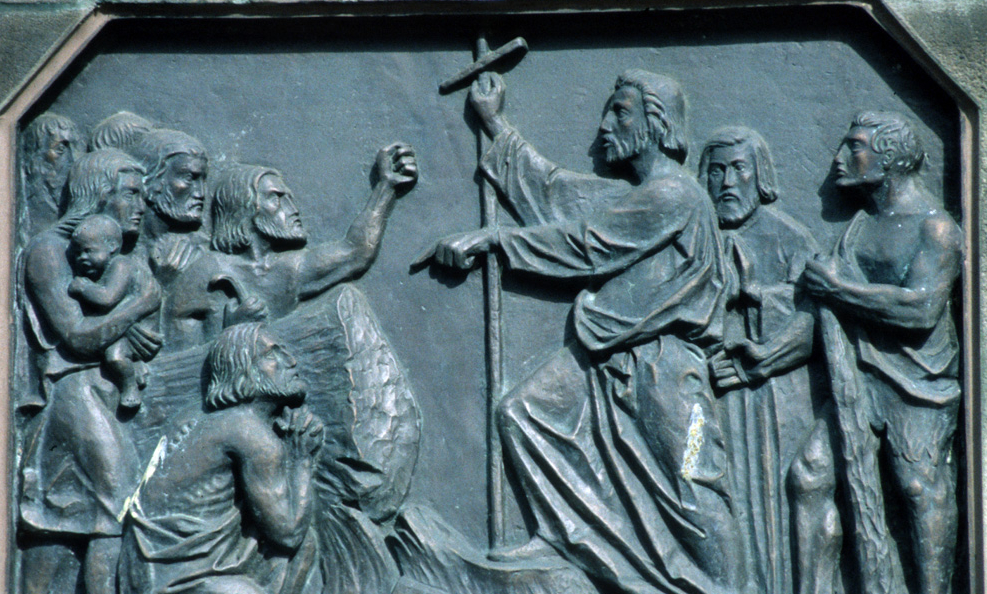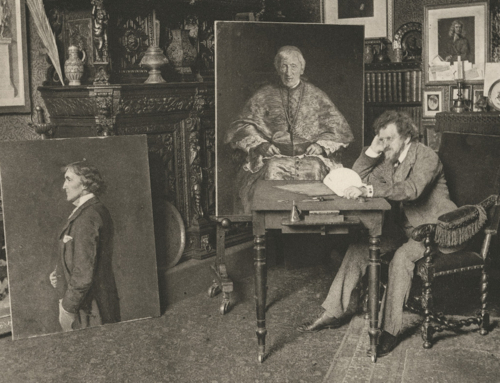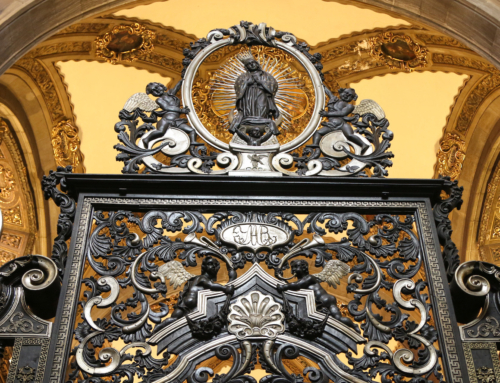Sometimes you have to call out nonsense for what it is. In an age of trigger warnings and safe spaces, where “I feel” exercises a sacred and undisputed hegemony over public discourse, people take it for granted that even the silliest ideas are valuable and need to be respected. In reality, however, that is totally untrue. While it is true that we should never use the truth as a bludgeon with which to beat people over the head, it is nevertheless the case that some ideas have to be treated with the disdain they rightfully deserve.
St. Boniface is a great model for us to look to in this regard. He lived in a time when pagan superstition was rampant (even among the recently Christianized peoples of northern Europe) and people were afraid of all sorts of silly things. A famous instance of this was the Oak of Geismar, which locals venerated as sacred to Thor. Instead of making a well-reasoned case for why the villagers might possibly consider rethinking their fear of a tree, Boniface simply chopped it down before their very eyes. His unsmitten person made a more eloquent case than words ever could. It is true that this was only one moment in the life of a bishop who did much learned teaching and preaching, and we should not take away from this episode that rational discourse has no place when confronting even the most ridiculous opinions. Still, there are times when reason is of no avail. At that point, all that remains is personal witness.
As absurd as certain ideas may be, their absurdity does not make them any less dangerous. Boniface was eventually murdered by hostile pagans, who were still clinging to beliefs Boniface had forcefully shown to be complete nonsense. Similarly, an increasing number of people in our culture suffer various forms of persecution for witnessing to basic truths about human nature and flourishing. Whereas the most outlandish opinions are widely acclaimed, those who appeal to common sense are vilified as narrow-minded bigots. Despite overwhelming opposition, Boniface was convinced that the light of truth would pierce the darkness of error, and time proved him wise.
May we, like St. Boniface, never weary of witnessing to the truth in a world that loves falsehood, confident that, in all our apostolic endeavours, it is God who makes them prosper (cf. 1 Corinthians 3:6-8). St. Boniface, pray for us.
✠
Image: Statue in Fulda, Boniface Fells Thor’s Oak (Photo by James Steakley, CC BY-SA 3.0).







